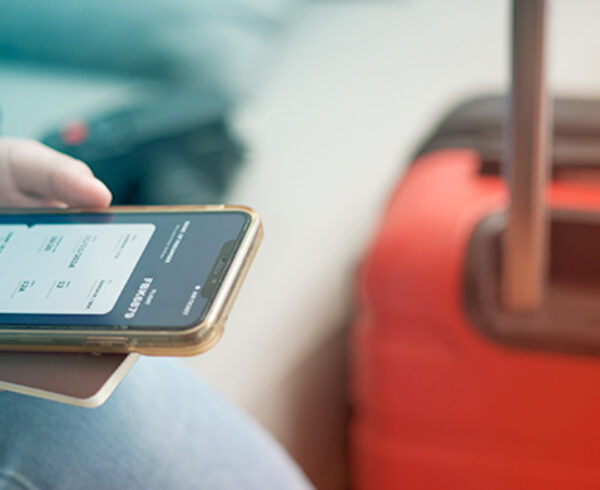If you travel for business or support employees who do, you no doubt found yourself impacted (for better or worse) by several events and developments in 2016. Here’s a look back at the biggest stories in corporate business travel from last year:
1. Major Mergers and Acquisitions
When 2 hotel giants join forces, it matters in the life of those who travel for business. In 2016, Marriott and Starwood joined forces as part of a $12.2 billion deal, creating the largest hotel chain in the world. What does that mean for business travel? Three things:
- Consolidation: Some brands are sure to go away. Marriott owns Ritz-Carlton, Renaissance, Gaylord, Residence Inn, Springhill Suites, Courtyard, Fairfield Inn and others. Starwood owns Westin, Sheraton, Four Points, W, St. Regis and more. There’s overlap in the two portfolios, and some brands are likely to disappear in the coming years.
- Points: Both Marriott and Starwood’s loyalty programs were already among the most popular. Marriott’s points were worth about $8.92 per 1,000, and Starwood’s were worth about $22.68 per 1,000. Expect those Starwood points to decrease in value eventually, with Marriott’s increasing in value. But changes to the program are unlikely to come until later in 2017 at the earliest, and more likely in 2018 or beyond. In the meantime, point-holders will enjoy greater selection when redeeming.
- Competition: It’s never good for travelers or companies that pay for travel when competition dwindles. Not only might travelers experience higher prices due to this massive merger, independent hotels might also have a harder time making ends meet.
The airline industry also saw consolidation in 2016 when Alaska Air Group purchased Virgin America. While this merger also decreases competition, it does offer frequent travelers a more attractive loyalty program.
Alaska Air was already one of the last carriers to offer points based on miles flown rather than dollars spent. And now that it will offer more flights to more destinations, it can become the airline of choice for business travelers tired of the shrinking benefits offered by legacy carriers.
2. New Routes and Grand Openings
More options add up to better travel experiences, both for business travelers and the companies that pay the tab. Options mean greater competition, lower prices and a better chance of finding an itinerary that meets your needs.
In 2016, British Airways announced new flights between London and New Orleans — the first direct flights between the Crescent City and Europe since 1982. United also announced more frequent flights from London to San Francisco and Los Angeles — all on the Boeing 787 Dreamliner. And changes in foreign policy led to the first flights between the United States and Havana in more than 50 years.
New hotel options opened for business worldwide, too. The Four Seasons opened a location in Lower Manhattan. W Hotels opened in Dubai and Tel Aviv. And Ritz-Carlton is now operating in Budapest — its first property in Hungary.
3. Nightmare Days and Disruptions:
Frequent business travelers know to expect the unexpected. In 2016, computer crashes and other technical difficulties created nightmare travel days.
A computer glitch forced many JetBlue passengers to check-in manually in March. Southwest canceled 1,000 flights in July due to a computer meltdown. And a power outage grounded Delta flights for 6 hours worldwide in August.
Labor strife also led to significant disruptions. Airline pilot strikes canceled Air France and Lufthansa flights in November. Philadelphia transit workers went on strike just before Election Day. Workers at Chicago’s O’Hare Airport walked out around Thanksgiving. And British Airways cabin crewmembers discussed striking at Christmas.
4. Netflix Disrupts Travel Entertainment
Airlines and hotels have invested a great deal in delivering entertainment to passengers and guests, and many of these entertainment options serve as revenue generators — think movie rentals and even pay-for-streaming Wi-Fi access.
But Netflix may have thwarted those revenue streams in 2016 by announcing the rollout of offline viewing. Passengers on airlines no longer need to buy Wi-Fi to view content, and guests at hotels no longer need to rent movies or pay a premium for stream-worthy Internet access.
Honorable Mentions
A few other 2016 business travel stories that deserve mention:
- Business Travel is Booming: Business travel is alive and well, and there appears to be no slowdown in sight. The American Express division that services corporate cards registered a 2% increase in expenses in 2016’s fourth quarter when compared to the last three months 2015, and some airlines also reported record numbers of corporate travelers at the end of last year.
- The Sharing Economy Goes Mainstream: Uber was the single most expensed travel vendor in 2016’s fourth quarter, beating out American Airlines, Starbucks, Delta and other corporate giants. Uber represented 6% of all corporate transactions.
- Concur Issues an Insightful Report: Concur did a huge favor for travel managers, issuing a thorough report called the “State of Business Travel 2016.” This report includes helpful information on the business travel experience, a look at where business travel dollars go, as well as an analysis of how well those dollars are spent.
Keep Tabs on the Changing Business Travel Industry
While 2016 brought significant change to business travel, 2017 is sure to bring even more. Do you need support that only a quality corporate travel agency can provide? At JTB USA Business Travel, we offer a common sense approach to travel for business that creates value for travelers, travel managers and executives.
Make sure you have the insights and support that lead to better travel experiences and more efficient travel spending. Contact us to learn more about how we can transform your approach to business travel into a common sense approach.














Leave a Comment